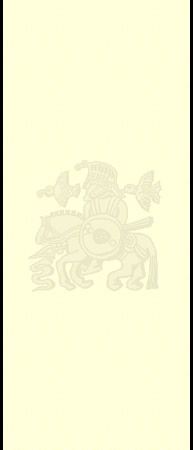



| Web site design and maintenance by Akikaze Media Services. All content of this site, unless otherwise noted, is copyright ©2001 Robert Bly. All Rights Reserved. Any duplication, in any form without the written consent of the copyright holder is prohibited. |
By Robert A. Johnson with Jerry M. Ruhl
Published by HarperCollins, 1998
This is a fine autobiography. It doesn't trample you down under the weight of numerous people or events, and it's not full of petty detail. The activity of the book lies there like a great lake, giving evidence of human interaction, maybe with mysterious, foggy forces. We could say an artist is guided by his brush, a horse by his rider, and Robert Johnson is guided by his dreams. We learn what it's like to trust in the god of dreams. A lot of waiting takes place; waiting for the right moment means that you wait for your dinner until the chicken arrives, takes off its feathers, and jumps into the pot. Let's imagine Robert Johnson is living in a tent in a desert and he becomes thirsty. He waits until a spring comes up through the sand just in front of his chair. That's the kind of person he is. There is no "irritable reaching" for an answer, a resolution, a career, the next step.
He lost the lower part of one leg when he was about eleven–I had no idea this was true. He was entering a cigar store in Portland, Oregon, and was almost inside when an out of control car crashed into the doorway. Twenty seconds earlier he would have been fine; twenty seconds later he would have been dead. So if the rest of his body was saved, it must have been for something. He thought it might be music–he became a tolerable organist; then he became a fire-watcher, as Gary Snyder did, and found himself deeply content with utter solitude. Later he tried leaving the world for a monastery, but he found out that most of the monks were there in order to flee from life and not to find it. Like a small dog chewing on a big bone, he won't quite let go of God, no matter what happens. He writes a lot about this matter of giving your inner gold to someone else, a guru or a lover. Do you give it to another, or do you project it on that person?
He writes sensibly about gold. He favors grandparents over parents, inactivity over activity, eating your own gold over giving it to someone else (he tried giving Krishnamurti his gold, but it didn't work), he prefers ordinary love over romantic love:
The desire to live out one's religious life through someone else is probably the most common form this projection takes in Westernized society; we glorify it as romantic love. In romantic love, we briefly put all of our gold onto someone else, and of course the projection cannot hold up ... Relationships generally begin with this type of projection, but to be maintained they must evolve into a sustainable human love. The projection of the inner gold must gradually be taken back.
"Slender threads" lead him where he wants to go. In his twenties he went to Europe on a tramp steamer and two men he met there, Art and Michel, became friends. Probably only on a tramp steamer would he have given enough time to others to make friends. Michel makes him feel at home in Paris. Art likes making money fast. It's amazing what comes to Robert Johnson from a single event such as making friends with two people on a tramp steamer. In a city of three million, Paris, which he rarely visits, he keeps meeting Art on the street. Eventually on a gift from Art he is able to study in Zurich. Robert Johnson is the sort of person who finds one half of a map on the sidewalk and then five years later a total stranger hands him the other half. He's content to be guided by higher powers. He writes with a persistent and pervading feeling of humility about his gifts, about his relationships, about his spirituality, and yet the dreams are enormously grandiose. In one dream, which he eventually had a chance to tell Carl Jung, he learned that a Buddha is born every thousand years. He and Buddha are friends; they grow up together, but crossing a river, Buddha drowns. He waits a thousand years, a star shines in the night sky, and again the Buddha is born and he spends another long period as a companion of the Buddha. Then he waits another thousand years for the birth of the third Buddha, and then for the fourth Buddha. As he's waiting for his old companion to be reborn the fourth time, the sun touches the knothole of a tree and an enormous snake comes out, and Robert spends the rest of the dream running. After Mrs. Jung had showed the dream to Carl, Jung telephoned him and said, "Get out here at once. I want to talk at you." Jung gave him good advice and so on. To find Jung's interpretation of the dream, you'll have to read the book. I suggest you do it.
The prose is not very good; the range of vocabulary is tiny. Ideas are presented without "the coat of many colors"; this is a farm without peacocks... Well, no matter. The whole book is about having less, giving less, being less, expecting less, receiving less, which is enough.